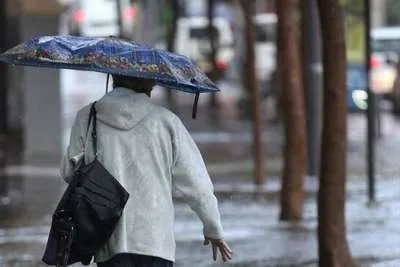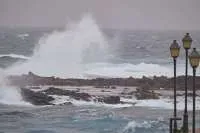Four hikers with hyperthermia rescued on Mount Teide without required permits
- 10-12-2024
- Tenerife
- Canarian Weekly
- Photo Credit: 112 Canarias
Four people were rescued early on Friday night after becoming stranded on Mount Teide in Tenerife. The group, who lacked the mandatory permits and correct equipment for their ascent, faced extreme cold conditions without proper clothing, footwear, or food.
They now face potential fines ranging from €2,000 to €12,000 for violating local regulations.
The rescue operation was initiated at 5:50pm following an emergency call from one of the stranded hikers. The caller reported that they, along with three others, were trapped near the upper station of the Teide cable car, which was closed at the time. None of them were equipped for the ascent, lacking not only adequate clothing and footwear but also food supplies.
Authorities quickly mobilised a rescue team consisting of the Environmental Protection and Cultural Heritage Group of the Canary Islands Police, the Immediate Response Team for Emergencies (ERIE), and the Tenerife Fire Brigade. Additional support came from a rural guard and a guide from Gesplan, who assisted in navigating the challenging terrain.
The search operation covered multiple access routes to the summit, as well as areas around the cable car station and a nearby refuge. At around 12:30am, the group was located sheltering in a storage room behind the refuge. By this time, they were showing clear signs of exhaustion and hypothermia due to prolonged exposure to the cold.
Medical assistance was provided on-site before the group was transported to La Orotava. Officials confirmed that the group of French hikers lacked the required permits, appropriate clothing, and essential gear, all of which are mandatory under Tenerife’s new regulations for ascending Mount Teide.
The Tenerife Cabildo has introduced new strict regulations for access by foot to the summit of Teide, which allow a maximum of 300 people per day, divided into three time slots. These measures, including the mandatory use of permits and proper equipment, aim to ensure safety and environmental protection. Violators, such as the rescued group, face hefty penalties for non-compliance.


























































